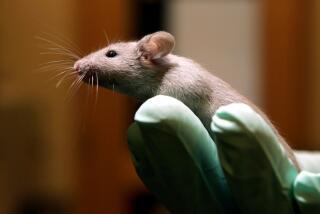Letters to the Editor: One failure to replicate a scientific study doesn’t mean there’s a crisis
- Share via
To the editor: In his Aug. 14 op-ed article, psychology professor Stuart Ritchie reports on a recent failure to replicate a study of ours and uses this as an example of a replication crisis in science. He lauds efforts by the scientific journal Cortex to promote the replication of seminal findings as a means to address this crisis and laments that such efforts are too infrequent in science.
However, Ritchie and the report in Cortex he references present a misleading view of our findings — that without medication or invasive treatment, a person’s remembered response to threat can be persistently diminished — and the efforts of scientists to verify this important scientific advance over the last decade.
Because the scientific community long recognized the importance of our original paper, there have been more than 30 published studies attempting to replicate our basic finding in humans, with many more in rodents. The majority of these studies found the technique highlighted in our Nature paper successfully “rewrites” threat memories, preventing their return. Other published reports have shown that integrating this technique with exposure therapy helps with reducing cravings in addicts, and with curbing physiological responses and avoidance in patients with PTSD and phobias.
Ritchie may have been unaware of how extensively our findings have been vetted by the scientific community because the authors of the publication in Cortex highlighted only their own attempt at replication and critiques of the initial report. They ignored many successful attempts to verify our findings; had the editors at Cortex invited us to publish a response, we would have pointed this out.
Science is supposed to be a self-correcting process. Our initial study was not without its flaws, which is why we published a correction and replicated the results. However, just as it would be a mistake to place too much faith in a single scientific study without independent verification, it is also a mistake to assume a single failure to replicate invalidates a scientific advance.
Elizabeth Phelps, Cambridge, Mass.
Joseph LeDoux, Fosterdale, N.Y.
Daniela Schiller, New York Mt. Sinai School of Medicine
Phelps is a professor of psychology at Harvard University, LeDoux is a professor of neural science at New York University, and Schiller is an associate professor of neuroscience and psychiatry at the Mt. Sinai School of Medicine.
More to Read
A cure for the common opinion
Get thought-provoking perspectives with our weekly newsletter.
You may occasionally receive promotional content from the Los Angeles Times.









